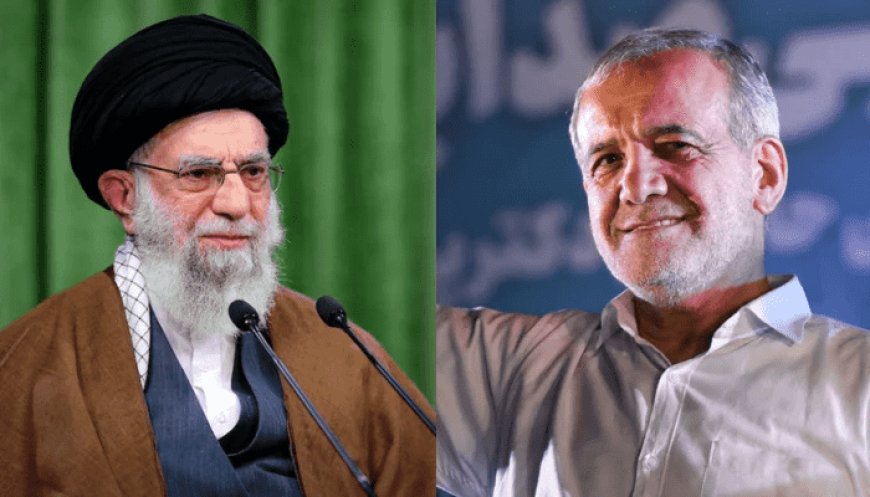Iran's Pezeshkian officially gets presidential powers after supreme leader's nod

1. Masoud Pezeshkian is set to be sworn in as country's ninth president before parliament on Tuesday
- Khamenei endorses vote for "popular" Masoud Pezeshkian.
- Supreme leader grants presidential powers to run-off winner.
- President-elect set to be sworn in before parliament on Tuesday.
TEHRAN: Iran's reformist President Masoud Pezeshkian on Sunday was granted presidential powers after the country's Supreme Leader Ayatollah Ali Khamenei officially endorsed him as Iran's ninth president.
"I endorse the vote [for] the wise, honest, popular and scholarly Pezeshkian, and I am appointing him as the president of the Islamic Republic of Iran," the director of Khamenei's office said in a statement attributed to the supreme leader.
During the run-off polls, called after none of the candidates managed to secure more than 50% of the votes in the first round of elections, Pezeshkian received more than 16 million votes, whereas Jalili secured around 13 million votes.
Pezeshkian, 69, is a heart surgeon who has represented the northern city of Tabriz in parliament since 2008 and had the endorsement of his previous boss and Iran's last reformist president Mohammad Khatami as well as ex-president Hasan Rouhani.
During the Iran-Iraq war in 1980s, Pezeshkian, a combatant and physician, was tasked with the deployment of medical teams to the front lines. He has also served as the country's health minister from 2001-5 in Khatami's second term.
Since his win, the president-elect has expressed willingness to see Tehran's relations improving with European countries.
He has called for "constructive relations" with Western countries to "get Iran out of its isolation", and favours reviving the 2015 nuclear deal between Iran and global powers.
Washington unilaterally withdrew from the accord in 2018, reimposing sanctions and leading Iran to gradually reduce its commitment to its terms. The deal aimed to curb nuclear activity which Tehran maintains is for peaceful purposes.
In a piece published in the Tehran Times, Pezeshkian said that after the US withdrawal from the 2015 deal, European countries committed to try to salvage it and mitigate the impact of US sanctions.
"I look forward to engaging in constructive dialogue with European countries to set our relations on the right path, based on principles of mutual respect and equal footing," he said.

















































